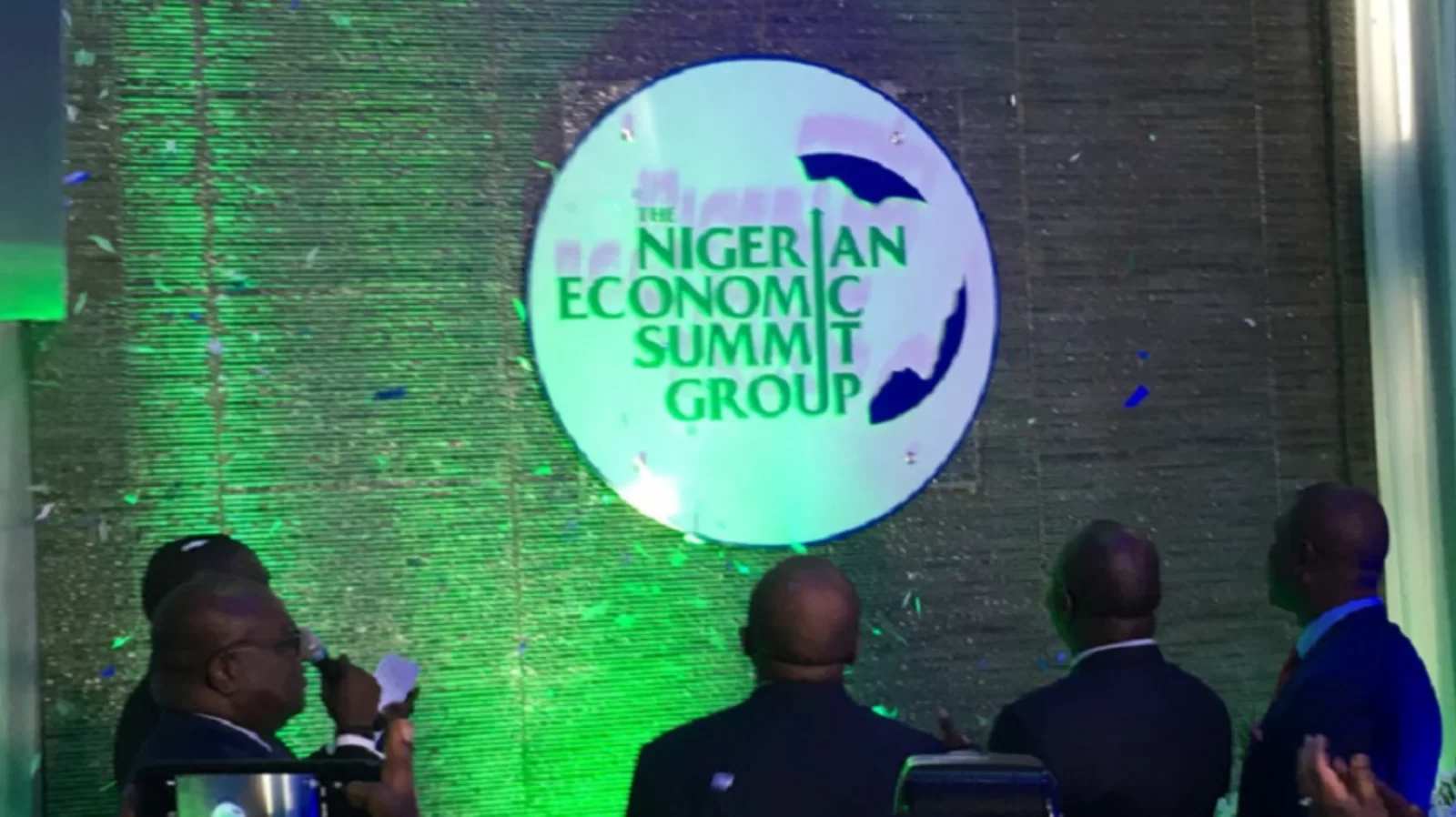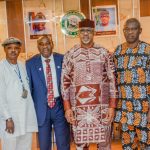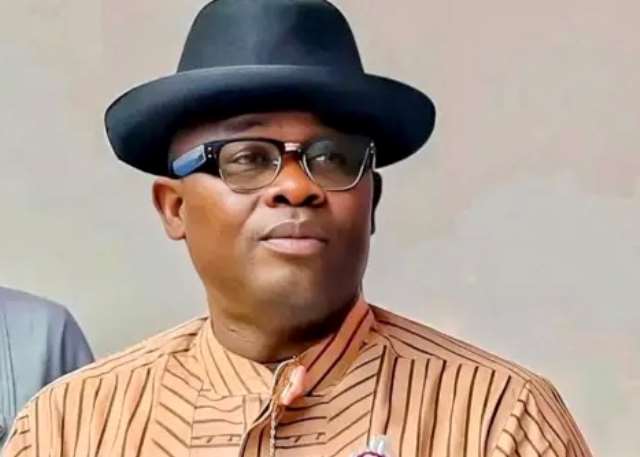To drive the nation’s economy and create prosperity for citizens, the Federal Government should unlock underperforming national assets, the Nigerian Economic Summit Group (NESG) has suggested.
According to NESG’s Chief Executive Officer, Mr. Tayo Aduloju, most of the national assets are underperforming their potential as they are gridlocked in policies, legislations, political, and sometimes vested interests constraints.
Aduloju spoke when he and Mr. Udeme Ufot, Chairman of the NESG’s Board of Media and Publicity, paid a courtesy visit to Arise News Group and THISDAY Newspapers.
The visit is to sensitize the media on the upcoming 30th Nigerian Economic Summit with the theme, “Collaborative Action for Growth, Competitiveness, and Stability.”
They were received by the Managing Director of THISDAY, Mr. Eniola Bello; THISDAY Ombudsman, Mr. Kayode Komolafe; Dr. Reuben Abati of Arise News Channel’s “The Morning Show,” and the Director Engagements and Guests Liaison, Arise TV News, Mr. Joseph Ushigiale, among others.
Nigeria, Aduloju said, needed transparency on the state of its revenue, assets, and liabilities.
He said: “On the assets side, Nigeria has $14 trillion in assets. As I keep saying to people, if we all belong in one family and our father just died and left $14 trillion worth of assets, and might have borrowed maybe $100 billion.
“One of us might figure out how to pay the liabilities and continue to enjoy the prosperity of the inheritance.
“That is the problem with Nigeria. Our (Nigeria’s) assets are not firing. Most of our assets are underperforming their potential because they are gridlocked in policies, legislations, political, and sometimes vested interests constraints. The key is to unlock these constraints.
“When I got into government under late President Musa Yar’Adua’s administration that reversed the sale of the refineries, which I do not know whether there is wisdom in it because we are back to whether to sell the refineries or not decades later.”
According to him, Nigeria needs to attain oil production that is above two million barrels per day to stabilize its economy.
He argued that half of the discussions on Nigeria’s assets are political.
“Power and some of our critical assets did not perform because those we gave them to were part of our patrimonial political culture.
“Any time we give assets to those who are committed to moving them forward for their interests, things go well, like in the telecoms reform,” he said.
The first challenge in Nigerian oil and gas, according to Aduloju, was that the country continued to play games with a sector that it knew could do better.
He said it required political elite consensus anywhere in the world that the game was over and the time to sanitize the industry had come for the oil and gas sector to be competitive.
Aduloju also contended that the government should not view the elimination of the fuel subsidy as a policy, but rather as one of its attempts to achieve fiscal balancing.
He said: “I cringe when people say that subsidy removal is a policy. It cannot be policy. It is a government action that is a symptom of a different problem.”
He stated that Nigeria has experienced four distinct patterns of subsidy implementation over the past 50 years, including the implementation of large-scale subsidy payments under military regimes.
He stated that the government used its savings to pay for subsidies from 1999 to 2010.
However, he stated that from 2011 to 2014, Nigeria managed subsidies as the first charge on its revenue, but between 2015 and 2023, it entered into deficit financing of subsidies.
“But in May 2023, a new president came and declared that the subsidy regime was gone after looking at the poor state of the country’s balance sheet.
“I think subsidy removal is a bad language to describe fiscal balancing or disciplining. I think the proper thing is that there has been poor fiscal discipline in the oil and gas sector, and it has created unintended consequences for a subsidized product.
“So, what must we tweak in the country’s balance sheet to still do subsidy and balance things out? It is up for debate. If Nigeria can find other ways to generate liquidity other than subsidy removal, it can continue with subsidies and solve other problems.
“I think that what we failed to do (before removing subsidies) was not having a proper national conversation. And that is where transparency would have helped.
“That could have created the choice pillars within which fiscal balancing could have occurred. But this government chose subsidy removal. Fine! Now it must deal with its pass-through effects,” Aduloju said.
He added: “Our position is that if you wanted to procure this kind of macro-reform, you have to do it in a sequenced manner with a well-bundled set of reforms that provides forward guidance to the market while simultaneously managing the cushioning effects of the reforms on households, individuals, and businesses.”
He clarified that setting up local refineries might not make petrol cheaper because doing business in Nigeria is expensive.
“Some of us are insisting that the PIA must be implemented. The law made for the market must be implemented. Run the law. If it is not sufficient, let us go back and change it,” he said.
Responding on behalf of ThisDay and Arise Group, Bello promised that the media channels would assist in publicizing the NESG activities.
























Leave a comment